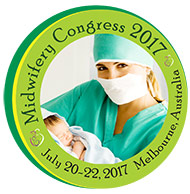4th World Congress on Midwifery and Women’s Health

Sukesh Kumar Kathpalia
Andaman Nicobar Islands Institute of Medical Sciences, Port Blair, India
Title: Awareness about postpartum insertion of intrauterine device among antenatal cases
Biography
Biography: Sukesh Kumar Kathpalia
Abstract
Background
In spite of many available contraceptives numerous unwanted and unplanned pregnancies occur. Though the couples desire contraception but are not able to accept it due to their ignorance and misconceptions. Intrauterine Contraceptive Device (IUCD); an effective contraceptive is usually inserted six weeks after delivery. It can be inserted within 48 h of delivery called postpartum insertion for which government has started the program in many states. The study was undertaken to find out the choices about contraception after delivery and awareness about postpartum insertion.
Methods
The present observational study was conducted in one of the zonal service hospitals. 500 antenatal cases were included in the study. Their choice of contraception after delivery and awareness was determined through a questionnaire. Reasons for refusal of postpartum insertion were recorded. A small sample of staff also was included in the study.
Results
500 cases were included in the study, a large number had decided about contraception; mainly breast feeding supplemented by barrier contraceptive. 94 of 500 were willing for insertion of contraceptive device but not immediately after delivery due to apprehension in general and fear of side effects. Staff's awareness about postpartum insertion was poor.
Conclusion
Knowledge and acceptance of postpartum insertion is very low among antenatal women; probably because the concept is new in the community. There is a strong need to increase the knowledge and awareness about this by health education and counseling.

